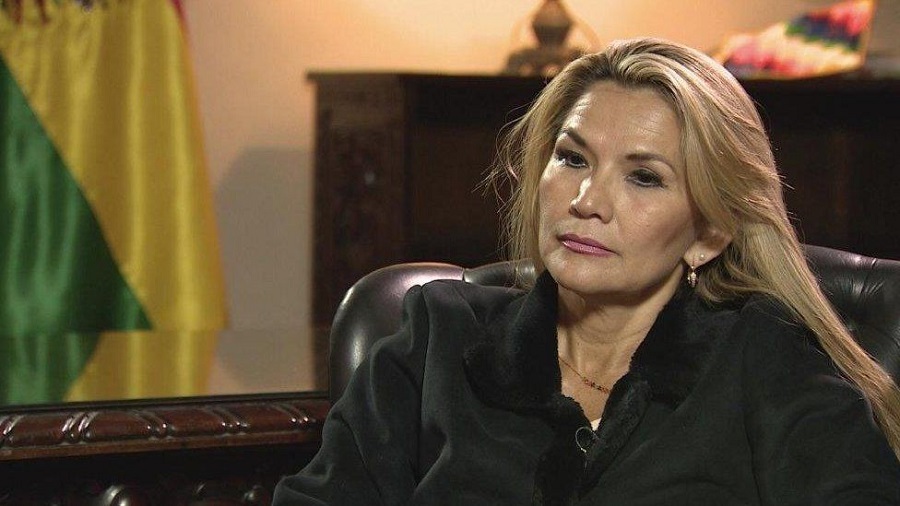RIO DE JANEIRO, BRAZIL – The former interim president of Bolivia, Jeanine Áñez, was sentenced on Friday (10) to 10 years in prison for violating duties and resolutions that violate the country’s constitution. The information comes from the newspaper El País.
Áñez assumed the presidency of Bolivia on an interim basis in November 2019 following the resignation of former President Evo Morales. She was accused of organizing a coup to oust Morales.
In addition to the former interim president, former armed forces commander Williams Kaliman and former police chief Yuri Calderon, both of whom are at large, were sentenced to 10 years in prison. Former military commanders were sentenced to prison terms ranging from 2 to 4 years.

During his tenure as interim president, Añez faced a wave of protests due in part to the social and economic crisis caused by the pandemic and in part to political maneuvering to postpone elections.
It was not until October 2020-after several postponements-that Bolivians went to the polls to elect a new president. Luis Arce, an ally of Morales, was elected.
Áñez was arrested in March 2021. In addition to conspiring to cause Evo’s resignation, she was also accused of terrorism. The former interim president denies the charges.
At Friday’s hearing, she said her government is in a “transitional phase” and that she “does not have the power” as she faces “blockages in the legislative assembly.” Añez said she has “no ambition to take over the country’s leadership” but is only doing her duty.
The former interim president’s defense announced that she would appeal the decision to international bodies.
UNDERSTANDING OF THE CASE
Morales’ resignation came three days after the 2019 elections when a wave of street protests charged alleged electoral fraud. An audit by the Organization of American States (OAS) pointed to voting irregularities.
Two days after the resignation, Jeanine Áñez assumed the presidency. Añez’s term was initially scheduled to last until January 2020 but was extended by the court until May that year. Bolivia’s Constitutional Court upheld her inauguration.
Bolivia’s elections, scheduled for May 3, 202May 3re postponed because of Covid-19. The country’s Supreme Electoral Court proposed a draft general election from June 28 to June 2827.
On September 27, the Legislative Assembly, in turn, passed Law No. 1,297 on the postponement of the 2020 general elections, with the majority of Morales’ party, MAS (Socialist Alternative Movement), proposing to postpone the ballot until August. However, Áñez did not approve the bill.
As a result, the Electoral Tribunal ruled that the election should be held by September 6 Áñez set the elections for that date but claimed to have been pressured by political opponents.
The elections did not take place until October 19, in the return of MAS to power, when current President Luis Arce won the election in the first round. He received 55.1% of the vote and was supported by Evo Morales.

